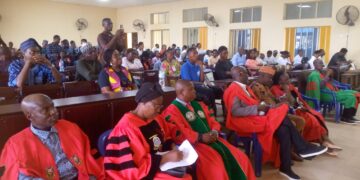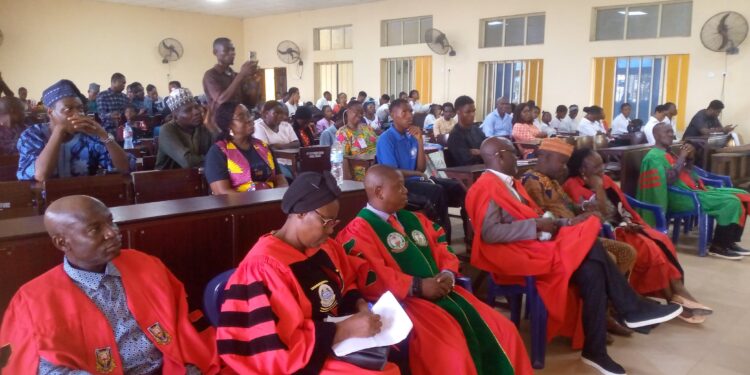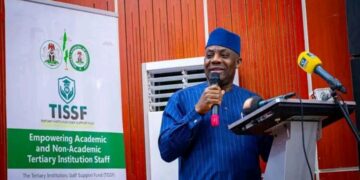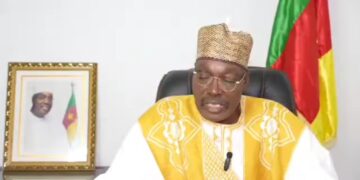![]()
Dr. Samuel Kehinde Fabunmi, a respected scholar in Christian Religious Studies, has asserted that while religion remains an enduring and influential force in society, it should not be seen as a universal solution to Nigeria’s multifaceted challenges.
Delivering a thought-provoking lecture titled “Does Religion Still Matter?” on Wednesday, during the 2nd Academic Lecture Series organized by the School of Arts and Social Sciences, Federal College of Education (FCE), Abeokuta, Dr. Fabunmi explored the complex role of religion in Nigeria’s historical and contemporary context.
“Religion has remained a stronghold in African society because people are deeply spiritual and often seek divine answers to life’s problems.”
“However, religion is not a magical fix for our national issues. It must be balanced with critical thinking, tolerance, and proper leadership,” Dr. Fabunmi said.
Tracing the roots of religion in Nigeria to the 15th century, he referenced the arrival of Portuguese traders and the influence of monarchs’ religious beliefs on their subjects.
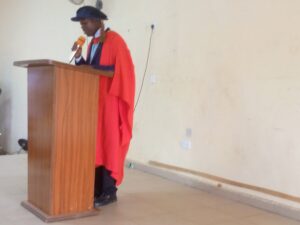
He noted that religion played a pivotal role in the abolition of the transatlantic slave trade and the expansion of Christianity through indigenous movements such as the Aladura and Pentecostal churches.
Speaking on the economic dimension of religion, Dr. Fabunmi explained that religious institutions do not only serve spiritual needs but also stimulate local economies.
“Many of these centers attract commerce and create livelihood opportunities for people,” he noted.
He further observed that the COVID-19 pandemic underscored the psychological and emotional support people find in their faiths.
“During the lockdown, many Nigerians clung to their beliefs for hope and resilience,” he recalled.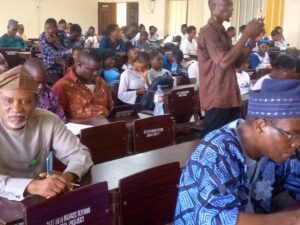
However, Dr. Fabunmi also issued a cautionary note: “Religion, when mismanaged, can breed division, fanaticism, and chaos. But when guided by understanding and mutual respect, it becomes a bridge for peaceful co-existence.”
The lecture attracted members of the college community and was graced by key management personnel, including the Deputy Provost (Academic), Deputy Provost (Administration), and the College Registrar.
The Dean of the School of Arts and Social Sciences, Dr. Chris Omotosho, in his welcome address, stated that the Lecture Series was initiated to foster scholarly excellence, intellectual engagement, and to highlight the academic diversity within the school.
“We aim to encourage a culture where knowledge and scholarship are celebrated,” he remarked.
In a joint remark, the Deputy Provosts commended the School for sustaining the Lecture Series and congratulated the organizers on what they described as a “well-coordinated and impactful event.”
